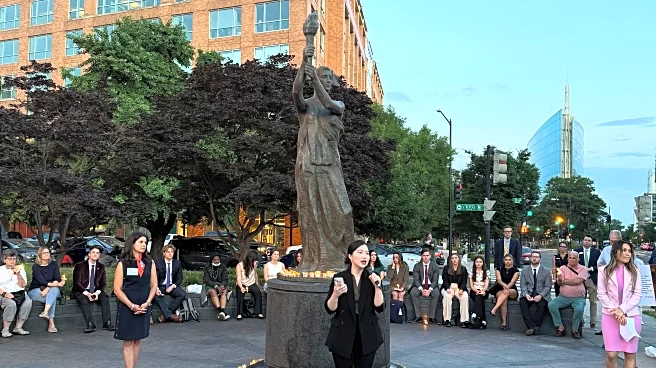Rapid Read • 8 min read
On February 5, 1919, Charlie Chaplin, Mary Pickford, Douglas Fairbanks, and D.W. Griffith founded United Artists Corporation, a film studio that allowed them to produce and distribute their own films. This initiative was a direct response to the restrictive practices of major studios, which often limited the creative and financial autonomy of actors and filmmakers. United Artists quickly gained prestige with successful films like Chaplin's 'The Gold Rush' and became known for its innovative approach to film production and distribution.
AD
The establishment of United Artists marked a significant shift in the Hollywood studio system, challenging the traditional power structures and promoting greater artistic freedom. By allowing artists to control their own work, United Artists set a precedent for future independent film ventures and contributed to the eventual dismantling of monopolistic practices in the industry. This move not only empowered filmmakers but also encouraged a more diverse range of films, ultimately enriching the cultural landscape of cinema.
United Artists' legacy continues to influence the film industry, as it paved the way for the rise of independent cinema and the diversification of production and distribution channels. The company's model of artist-driven production remains relevant today, inspiring filmmakers to seek greater control over their creative outputs. As the industry evolves with new technologies and platforms, the principles established by United Artists continue to encourage innovation and independence in filmmaking.
The founding of United Artists also had cultural implications, as it challenged the traditional roles and expectations of actors and filmmakers within the industry. By taking control of their work, these artists not only influenced the business side of filmmaking but also contributed to the evolution of film as an art form. This shift towards artist-driven production has had a lasting impact on the cultural landscape, promoting a more diverse and inclusive range of voices and stories in cinema.
AD
More Stories You Might Enjoy













